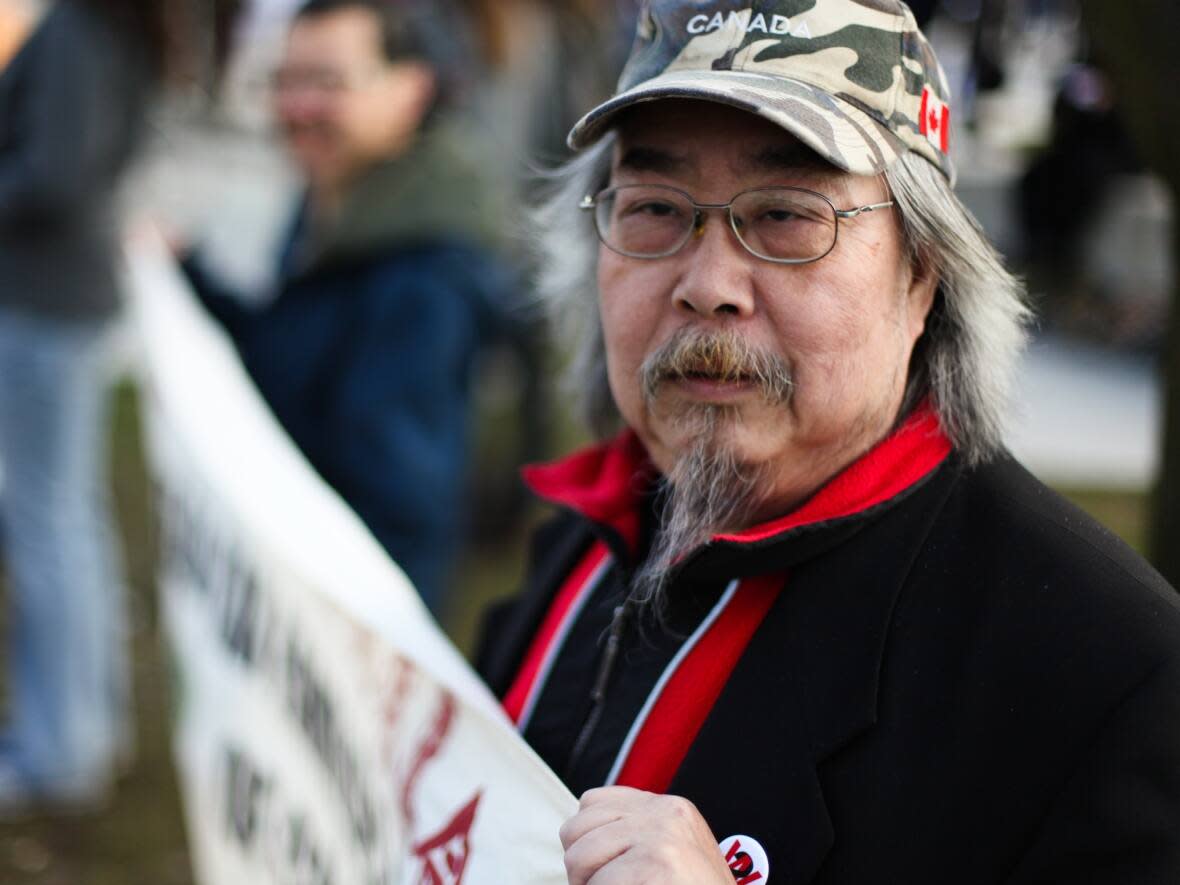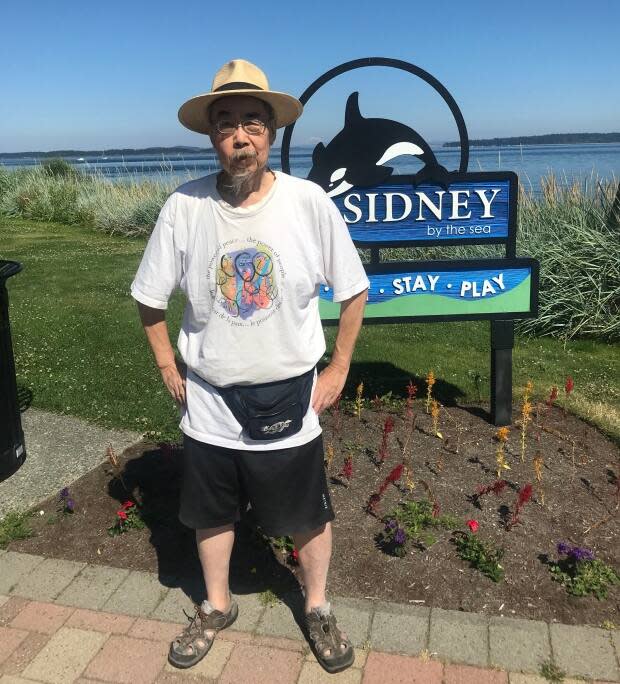Friends and activists remember community filmmaker Sid Chow Tan, dead at 73

Longtime activist and community media producer Sid Chow Tan died in his Vancouver home on Monday, his family confirmed. He was 73.
Friends and community members are remembering Tan as a "powerhouse" whose energy for fighting for the downtrodden was unmatched.
Tan was famous as an advocate for Chinese immigrants who had to pay the discriminatory head tax.
He was the founding director of the Head Tax Families Society of Canada and was involved in fighting for the Chinese-Canadian community well after the federal government issued redress payments.
WATCH | Sid Chow Tan advocated for many causes over the years:
But he was also an activist who fought alongside Downtown Eastside residents as they were pushed out of their homes, a community TV producer with decades of work highlighting thriving communities in Vancouver and someone heavily involved in the city's literary and theatre communities.
"He turned all of his energy — of which he had so much — to helping people out," said filmmaker Karin Lee, who worked alongside Tan on the head tax redress campaign.
"I think that energy came from [his] idea that you should be helping out people when you have the opportunity … some people are prolific in their art. He was prolific with his activism."

Some of the other causes Tan was involved in include environmental activism with the Sierra Club of B.C., mentoring community media producers and running for Vancouver city council in 2018.
"I think that his legacy really is, very much, build bridges and just live life," said Mary Woo Sims, former chief commissioner of the B.C. Human Rights Commission. "There was this whole other side of him that was so lovely, kind, and gentle. And then, it's this fierce activist as well.
"He's left a hole in our hearts … there's just not going to be another Sid."
Tan is survived by his son, daughter and two grandchildren.
WATCH | Sid Chow Tan signs on and off at ACCESS TV:
Came to Canada as a 'paper son'
Tan was born on May 20, 1949, in Canton, China, and came to Battleford, Sask., as a "paper son" with his grandparents, who ran a store in the small town.
A paper son refers to a way of coming into the country to get around the Chinese Exclusion Act, which banned most Chinese immigration to Canada, by using the legal papers of someone already in the country.
According to Deborah Angrave, Tan only found out he was a paper son when he was a teenager — which helped kickstart a quest to repatriate his entire family and the beginning of his fight to compensate head-tax payers and their descendants.
Angrave, who taught Tan when he was a volunteer at Shaw Television in 1986 and went on to collaborate with him over the next few decades at places including ACCESS TV, said he was an energetic "one man band" of a filmmaker.
"His basic foundation was 'this isn't right, let's do something about it,'" she said. "Water rolled off his back no matter what he was going through … his spirit will live on."
There is work underway to digitize Tan's vast library of community television, according to Angrave, who hopes the community comes together to remember him in the months ahead.
WATCH | As part of the Heart of the City Festival, Tan reflected on his documentary work:
A legacy of mentorship and community
Vince Tao, a member of the Vancouver Area Network of Drug Users (VANDU), met Tan while he was rallying to stop a condo building in Vancouver's Chinatown in 2017.
"He was the boss. He was like an old head and someone very close to my heart," he said. "He knows the score about the struggle. He knew which side to be on all his life. And that's something I really looked up to."
Tao said one of the lasting legacies of Tan's life would be his genial attitude and how he mentored numerous activists and organizers in Vancouver.
"As a video activist, he documented oppression, he documented domination and exploitation. But I think most importantly, he turned the camera back on us as organizers and movement makers.
"[He] allowed people to speak for themselves, to be able to articulate the struggles they go through every day, but also the joy and the feeling of love in this community. And that's so necessary."

 Yahoo Movies
Yahoo Movies 
